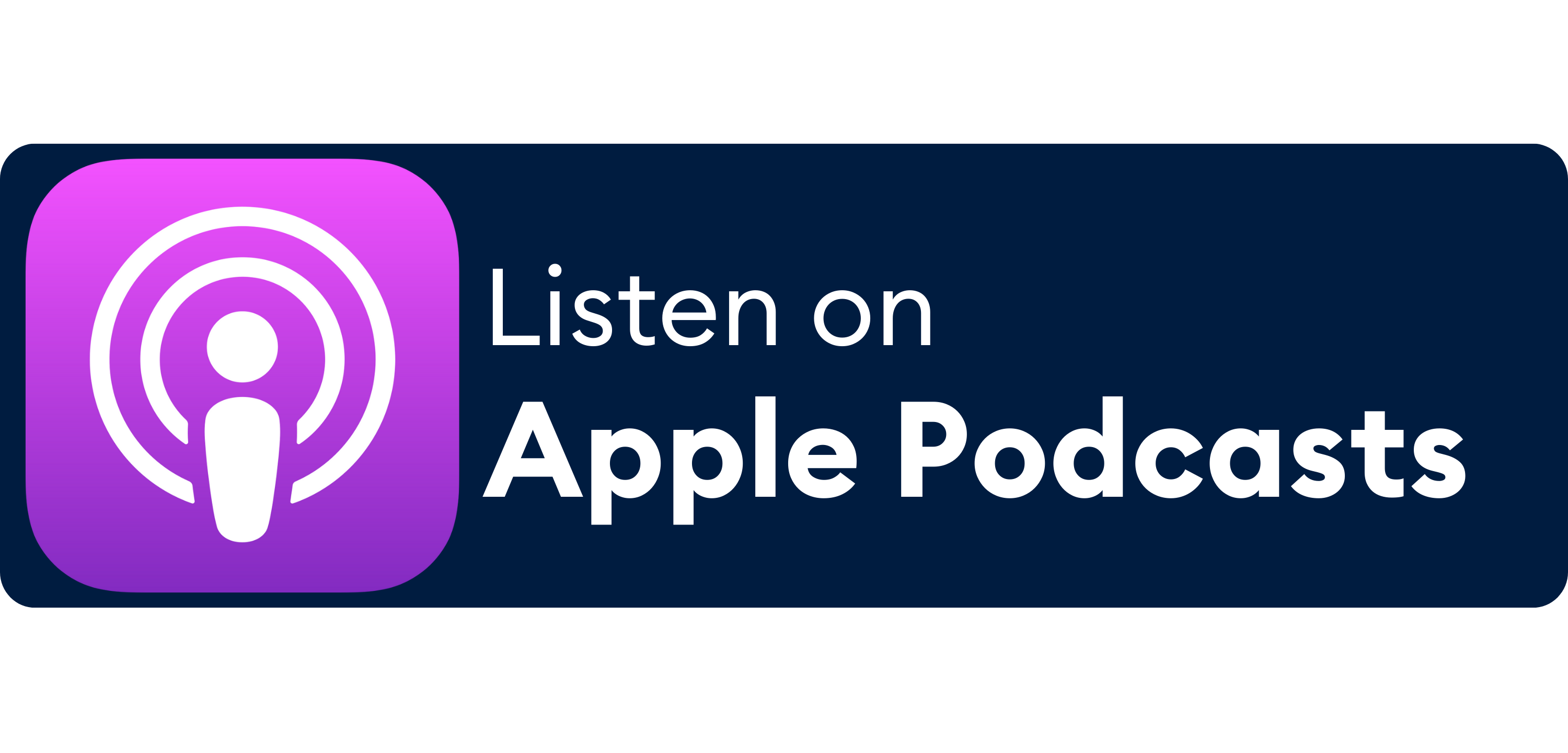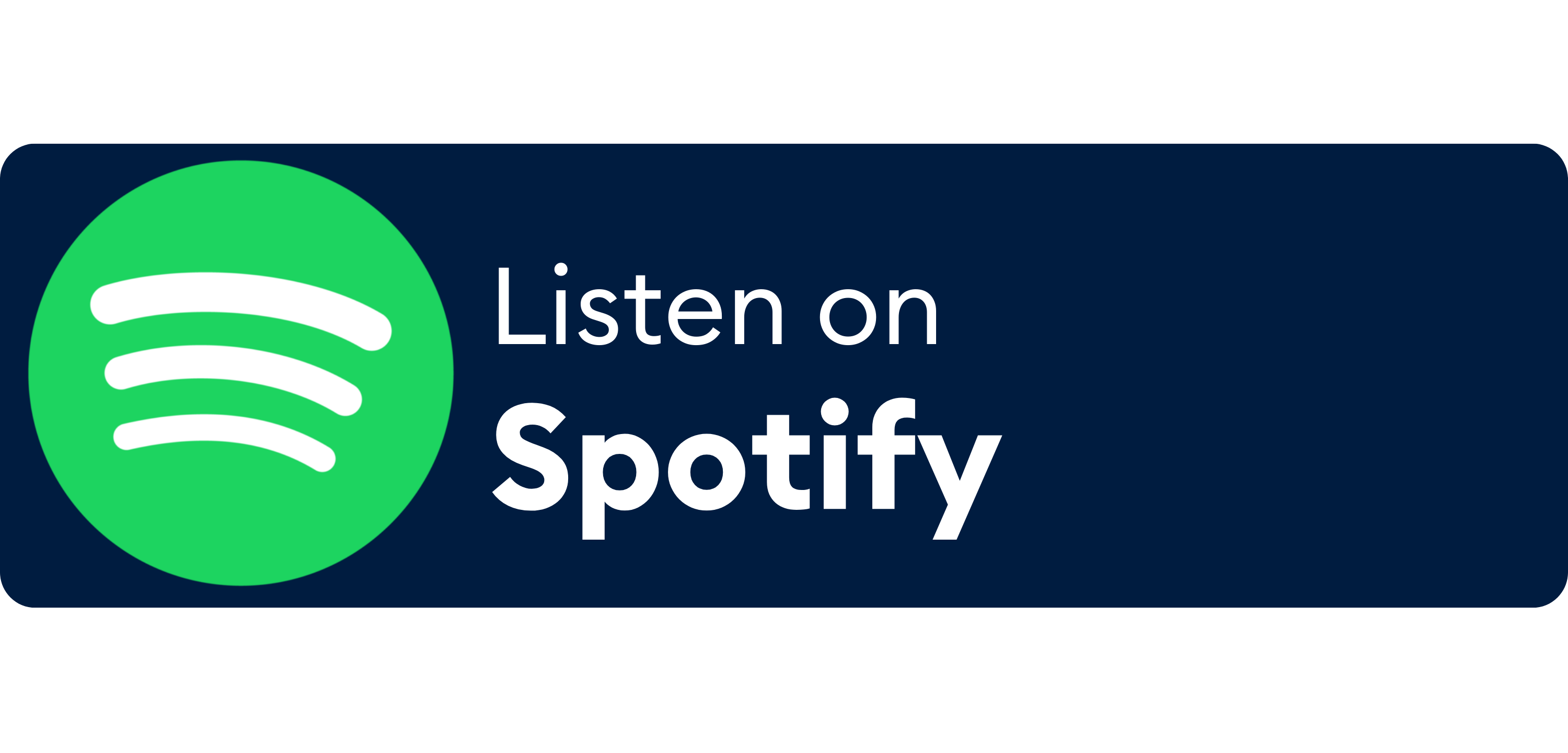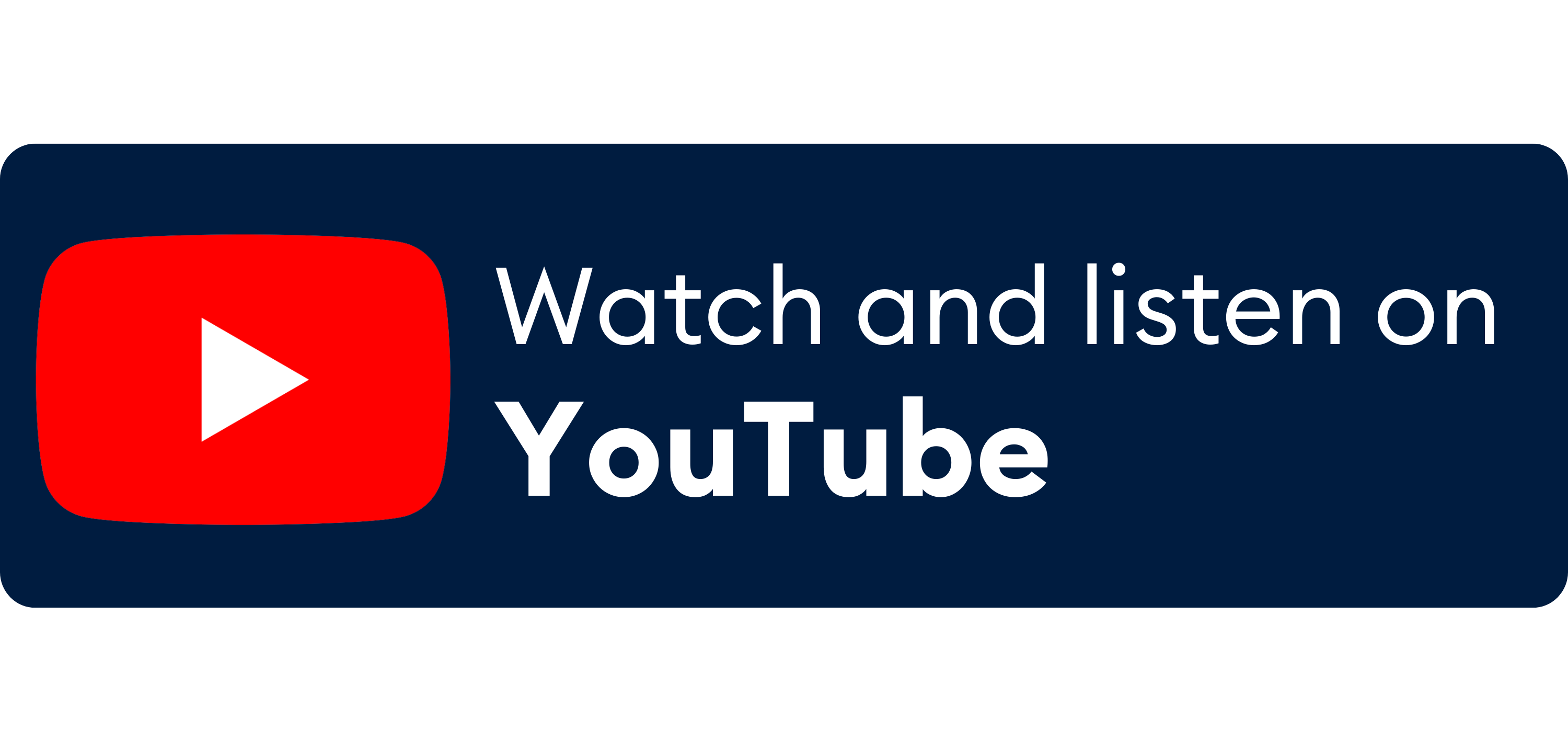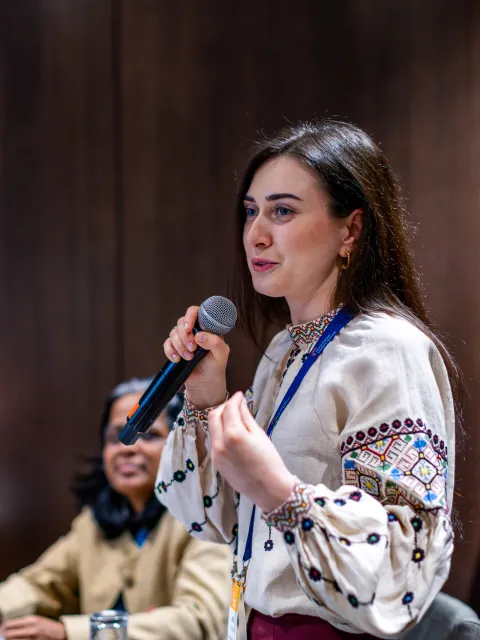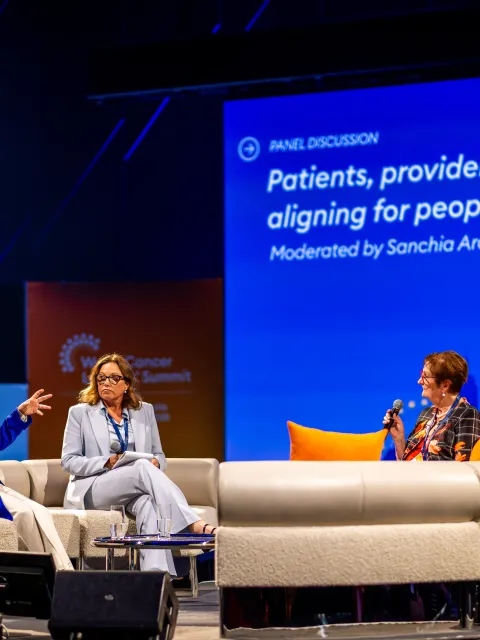Podcast "Let's Talk Cancer" – People-centred care and the power of the patient voice
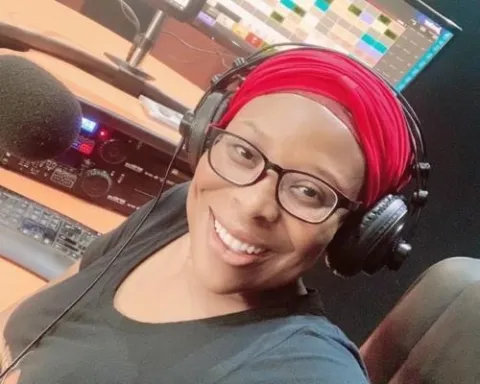
This new episode of Let's Talk Cancer continues on the theme of people-centred care, the focus of the new campaign ‘United by Unique’ for World Cancer Day, celebrated globally on 4 February.
Cary Adams speaks with Karen Nakawala, a well-known Zambian broadcaster, the mother of two daughters, and the Founder of the Teal Sisters Foundation, a UICC member organisation, who was diagnosed in 2019 with cervical cancer and fortunate to have access to free and timely treatment.
Many of the people she knew did not, and died from the disease. Karen has since become a passionate advocate for cervical cancer awareness and prevention, speaking notably at the launch in 2020 of WHO’s Global Strategy to eliminate cervical cancer, and working to convince girls across the world to get the HPV vaccine.
Watch the films in the 'Rewriting Cancer' series
Listen on: Spotify | Stitcher | Apple Podcasts | Amazon Music | Audible | Deezer
Podcast transcript
Cary Adams: Welcome to another episode of Let's Talk Cancer, the podcast where we delve into the latest advancements, stories, and insights in cancer care. In this month's episode, we continue on the theme of people centred care. The focus of the new World Cancer Day campaign, United by unique, that we will celebrate globally on the 4th of February and speak once again with someone with lived experience. Today, we are honoured to have as our guest Karen Nagarwala, a well-known Zambian broadcaster, the mother of two daughters and the founder of the Teal Sisters Foundation. In 2019, Karen was diagnosed with cervical cancer and was fortunate to have access to free and timely treatment. Many of the people she knew did not and died from the disease. Karen has since become a passionate advocate for cervical cancer awareness and prevention, speaking notably at the launch in 2020 of Who's Global Strategy to Eliminate Cervical Cancer and working to convince girls across the world to get their HPV vaccination. Karen, thank you very much for joining me. Perhaps you can start by letting us know what your personal journey has been with cervical cancer. You know what led to your diagnosis and how you experienced the the health system in in your own country?
Karen Nakawala: How I got the diagnosis done was still funny. We still laugh about it with my friend because she literally forced me to go and get screened. Not because I had there was anything wrong with me, but because she's my gynaecologist and she's my friend. And after delivering my last baby about at that time, it was about nine, ten years before I had not been to see her. So she kept asking me to go and and I kept telling her, look, I can't come visiting at your clinic. Really? I'm not sick, you know? And she says to me, look, the last time you had your child, we agreed that you were going to come for regular cervical cancer screening, and you haven't been. And that day, I was actually a director of ceremonies at the opening of one of the biggest private hospitals we have in the country, and the husband happened to be in the audience, and he just came up and said, Karen, today are coming for screening. And that day I thought, you know what, let me get them off my back. Let me go. I got into the bed and when she started examining me, I could see her face change. And so I asked her what was wrong. And she said, are you are you in pain? And I was like, no, I'm not in pain. And she said, I was bleeding. And immediately I thought she had hurt me with a speculum, you know.
Karen Nakawala: And I told her, this is why I didn't want to come, because I knew you were going to do something wrong to me. And she said, no, there's actually a growth on your cervix. So she went ahead and did a pap smear because she wanted to be sure. But she said, look, the growth is big and it looks like it's growing. So we might need to do a few more tests. At that point, again, I didn't think it was anything serious. I love to laugh about almost everything, you know. And she gave me those results and asked me to go to the cancer hospital. So when she mentioned cancer hospital, I think that's when I started getting, you know, the red flags in my mind. I'm like, okay, this could be serious. And so I called the doctor friend that I knew who was in charge of the cervical cancer program in the country. And I explained to her and she said, okay, fine, go to the hospital tomorrow morning, go and see this person. I'll tell them to be expecting you. I went to the cancer hospital and all I remember is it was so cold. I don't think it was the temperature. I think it was just the atmosphere. I was seeing I was seeing people, like, almost dying. I was seeing people in pain.
Karen Nakawala: I heard people crying. Immediately I started to think that would be me. You know, in a few days time or in a few weeks time. And I can tell you, I think I've never been so afraid in Afraid in my life. So I went through a flurry of tests and it was confirmed it was cervical cancer. Fortunately for me, it was early stage cancer. I was lucky because we still have women who are waiting for two years. They've been waiting for three years to start treatment. So I consider myself really, really lucky. And at the time the health system was still very strong. We still had radiation machines working. We had chemotherapy, brachytherapy. So I managed to do my treatment within a space of two months. Looking back, I don't think there's anything I could go back and say this wasn't done properly or I wasn't treated fairly. I was I was so unlucky. And when I compare myself to the women that are being diagnosed now, we don't have any radiation in the country. So they have to they have to self sponsor to go to either Tanzania, which is the closest, or those that are likely get onto the government sponsorship program, but they have to wait because we have at least over a thousand people waiting to go for treatment. So it has become very, very expensive. Well, it.
Cary Adams: Sounds like you were lucky to have good friends and a husband who cajoled you to be checked out, as well as a health system that responded so quickly. I mean, that combination certainly gave you a greater chance of survival than many others.
Karen Nakawala: Absolutely.
Cary Adams: From that, Karen, I understand that you then founded the Teal Sisters Foundation. I'm interested. Why is it called the Teal Sisters? Can you explain that to me?
Karen Nakawala: So teal is the colour for teal, and white is the ribbon for cervical cancer. Just like we have pink for breast cancer. So, um, when I was, I actually started as a Facebook movement and I was looking for a name and I didn't want, I didn't want to use my name, you know, like the Karen Foundation or I just, I needed something that people will relate to, you know. And so when I was told that the colour for cervical cancer is teal. The first thing that came to my mind was teal sisters. And that is how the name came about.
Cary Adams: And it's an advocacy group. Is that right? You're there to promote, um, you know, the knowledge about cervical cancer and encourage people, women, to go for screening and, and also improve the health system. Is that right?
Karen Nakawala: Absolutely. When I started it, it was I started on Facebook because I had no idea, um, what I was getting into. And for me, I was just looking, um, to having conversations with women about this disease. I'd like to believe that I am fairly exposed because, um, I do radio. I've done a lot of television in my life, and so I'd like to believe I'm fairly exposed, but I knew very little about cervical cancer. And so I thought, if a person like me, um, who really has information at her fingertips, doesn't know much about this cancer, what about the woman who's walking the streets? What about the woman who's in the village? The woman who's got no access to, um, even social media or to a smartphone? And so that is how I started the Facebook page. And believe you me, I set up that Facebook page one evening. Um. By morning. My daughter is calling me and says, mommy, have you looked at the page? I'm like, no, not yet. And I went to the page. We had over 10,000 women asking questions about cervical cancer where they can go for treatment. And I was so overwhelmed. I had no idea what to do. And so luckily, I still pulled in my same friend that had helped me navigate the system to come on as an administrator and start responding to the questions. Within a month, we had over 100 120,000 women on the page. So what we then started doing was, um, would just pick a random topic on cervical cancer, whether it was the symptoms, the kind of screening that is there, the kind of treatment and would have live conversations or just have a doctor come on and talk to the ladies about the symptoms that they will experience should they have cervical cancer.
Karen Nakawala: And hopefully that, um, encourages them to go and get screening. And within the first quarter of that year, that was 2020, we had more women go for screening in that quarter than women screening in the entire year, to a point where, um, health centres started running out of consumables. And I remember them calling me saying, Karen, you've created a problem for us. But it was a good problem because for me, so many women were saved, so many lives were saved, and those whose cancer was caught early, they managed to get treatment and their health outcomes were good. So that is how it started. And then I think after a couple of months, somebody told me, say, you know what? This is bigger than you thought. Why don't you actually just register it as an organisation. And that way you'll be able to reach a more, more people outside of social media because the ones on social media are really just a fraction of the women that you're looking for. And that is how I registered it as a foundation. And that's what we've been able now to canvass the entire country with advocacy messages and getting women to screen. And also because of that, um, I managed to get a seat at the table. I must say, I'm very stubborn. So I managed to push myself in, and I managed to get into the National Cancer Control Plan Committee. Um, I sit on, um, the committee that comes up with information and education, communication, literature. So I managed to get myself a seat at the table and also able to influence policies with regards to cervical cancer with the government. So that is how it started.
Cary Adams: And that's amazing. And I'm really impressed. And congratulations for you to, you know, becoming such a spokesperson for a disease, a cancer which actually can be cured, which is fantastic. Can I just ask, how important do you think it is that a that a patient, once they are diagnosed, is is engaged and works with their medical team through the process of treatment and care.
Karen Nakawala: I think I think it's speaking from experience. I think it's very, very important. It gives it gives one the assurance that things are going to be okay. Unfortunately, most patients are diagnosed when it's late stage, when there is very little that the doctors can do for them. And when it becomes very expensive to treat. However, regardless of the stage, I think it's very important that they start connection right from the beginning between the patient and the healthcare workers. And it also they also help navigate the patient through the different phases of the treatment. When I met up with my oncologist after doing all the tests, she said, look, Karen, you're a very good case for one that we can actually treat to cure and not just treat to manage because yours is early stage and your body is still very strong enough. So I'm sure you're going to withstand the effects of the chemotherapy and the radiation. Again, I say I was lucky because I had the same doctor from start to finish, whereas with the others they will go in today. They will see this doctor. The next time that they come for review, they will see a totally different doctor who doesn't even understand them.
Karen Nakawala: Again, it's just like that, you know? It repeats itself until they finish. But in my case, I was lucky. And that is why I say it's very important for someone to have the connection with the people that are treating her. There were times when I had like, bad, you know, reaction, and I would call her in the middle of the night because I thought I was going to die. I had that kind of relationship with her because we were together right from the beginning. And I think even, even the health outcome is so much better because you have you have help on hand whenever you need it. But when you're talking about a system like where I'm coming from, where we have very few doctors, like really the ratio between doctor and patient is so high it's in the hundreds, one doctor to several hundreds of patients. It does become a difficult um, I know that they try their level best, but I would like to get to a situation where our patients are really just in very constant touch with their doctors, with their health care providers, because I think that is very, very important for someone's journey towards healing.
Cary Adams: When you highlight there beautifully is the fact that you know, you're not just being treated physically, but you're emotionally. You need support from everyone around you, and the support you can get from your medical team is so important. They can be there to support you when you have your ups and downs, and particularly the downs, to give you assurance that it's going to be okay. But it seems that you've taken your life is now at a national level with your involvement with the National Cancer Control Planning Committee. Clearly, you're there as a patient voice, aren't you? You're you're that's your your role around the table is to make sure that the patient voice is heard in decisions that the government take on improving cancer control across the country. Is that a role that you enjoy doing?
Karen Nakawala: Absolutely. And I can tell you that I had never, ever thought I would do this ever in my life. I was always on stage, you know, and then suddenly, um, I get this diagnosis. And during the time that I was going on treatment, everything just changed. My life just changed. I no longer had the energy to do what I used to do before I tried. I mean, just after. Just after my treatment finished. That was in September, end of September. Two weeks later, I had the biggest fashion show ever. I always used to have the fashion week in October and I told myself I was going to do this. I think I needed to prove a point, you know, that I was okay. And but after I did that, and then a couple of months later, I started the Facebook page, I think everything just just changed, really. So this has become my life. And I've been I've been travelling the world. I've been. Yeah, I've been, um, at every big stage you can think about just being the voice for the voiceless, trying to squeeze in so that people can see the importance of the lived experience.
Cary Adams: And how do you feel? I mean, more broadly, you said you've been on many stages. How do you feel government's view, including patients in their national cancer control planning committees and listening to them? Do they do you feel they really, genuinely listen to the patient's voice when they're making such big decisions about how to improve cancer care in their own country?
Karen Nakawala: I think they do. I'll speak from my country's perspective when I when I was going through the treatment, I didn't know anybody that had suffered from cervical cancer. I knew those that had died, but nobody had come up to say, um, I survived this thing. I knew a lot of breast cancer patients, some prostate cancer patients. And so when I got my treatment, I thought I needed to be that voice, you know? And like I said, when I started, I honestly had no idea where it was going. I thought I was just going to be talking to women. And then the next thing, I'm sitting on these committees and I'm being invited, and the first one that I was invited to was to sit on a committee that was coming up with literature on cervical cancer. And for the first time, they had a patient on that committee. And when I look at at the literature that was done before I was on that committee, it was done from the eyes of the doctors. It was done from the perspective of the healthcare workers, never from the perspective of the patient. Okay. And so I brought in I gave it the human face, for lack of a better word. And the literature that we came up with because of my involvement was more relatable to the woman who was reading them, because they were coming from a person that had had a lived experience. You know, I would describe the symptoms that I had, even though I ignored them at the time, because I always attributed them to something else. I described what I went through during treatment, and not what the doctor sees from the outside and assumes the patient is going through. And I know that in other countries as well, I've got colleagues who are in Kenya, who are in Malawi, in Rwanda. Rwanda, which is doing so well. The governments have listened and they have incorporated the voices of the survivors.
Cary Adams: Other countries. UICC, as you know, is an international organisation which works with many cancer organisations around the world. How important do you think it is that there is there are international organisations that are there to support the likes of yourself, for example, to get your message out and to help you achieve what you want to achieve in your country.
Karen Nakawala: I think UICC is really important, and I speak from a personal point of view, because from the moment that I have been involved with UICC, I have seen, for lack of a better word, my star shining brightly. It has shone brighter than before because they have helped me collaborate with other organisations in other countries, and that collaboration has helped. UICC has helped me learn what others are doing, and also we share the best practices and I'm able to pick up from the successes of another country and try to bring their programs into my country. Of course, I will tailor make them to suit my environment. And so for me, that is really, really important that they have helped to create the partnerships. We are part of the the patient mentorship at PMP and I belong to this group of amazing advocates, and we share ideas and we get together once in a while in a meeting to share ideas, to talk about what we're doing, talk about the successes, and to talk about our failures, and to see how we can learn from other countries and improve on, you know, where we're failing. They recently took us to the Cancer Congress, and we were there together. We had the session on on people with lived experience. And for me, that is really very important that we have such an organisation that doesn't just look at, um, the importance of treatment, you know, uh, healthcare systems, but they also look at the, um, the quality of survivorship that we, we have or we are supposed to have as people with the lived experience.
Karen Nakawala: And not only that, I think they help quite a lot when it comes to, um, fostering government relations or government to government relations because of the different programs that they put in place. I mean, I just spoke about the about the World Cancer Congress that was in Geneva. We had so many countries come up there and tell their stories, tell us what they're doing, how they're strengthening their health systems. There are those that are struggling. And so in that mix, we sort of start to learn from each other. We start to pick up ideas on how we can do better. And I think the collaboration also helps on improving, improving, um, policies in countries, improving the programs that we're doing as, as advocates. And so I think I'm like, I'm always amazed every time I think about the ICC and the job that they're doing in the cancer space. And I'm truly honoured and humbled to be a part of it.
Cary Adams: Well, we have, a new World Cancer Day theme coming up over the next three years. Karen. And, um, as you all know, it's called United by Unique. And your story is, as ever, a unique story. What you faced, the way that you've dealt with it, the way you've responded to the challenges you had playing a role now at the government level, establishing the Two Sisters Foundation, working with us at the World Cancer Congress is is a story in itself. But of course, your story is about becoming united with others and helping others united with the government, united with your two sister friends around the country and around the world. So what's your message for people who are facing a cancer diagnosis. What's your message to them as a cervical cancer survivor?
Karen Nakawala: I think I always like to tell people that when you get a cancer diagnosis, I mean any normal person, the first thing that you're going to think about is I'm going to die. And you're going to start asking questions, will I get better? Because you've seen so many people around you drop dead from from this cancer. And for cervical cancer, you add on the stigma that comes with it. And you find that a lot of women choose to die in silence because they would rather not tell people about cervical cancer, because I don't know in your part of the world, but in my part of the world, anything that is below the belt is considered taboo and people start pointing fingers at you. They start accusing you of promiscuity, you know, sleeping around this and that. But obviously that's because we don't know better. And so when somebody comes to me and they tell they told me they've got a cancer diagnosis. The first thing I told them is to go through the motions, go through whatever you feel and don't try to mask it. But I want you to remember that this is a journey that you can win and that you're not alone.
Karen Nakawala: You've got people that can work with you. They'll come back to me and say, But Karen, I'm not strong enough. And I tell them, you know, sometimes the only option you have is to be strong. And we don't know how strong we are until you get a cancer diagnosis and you start drawing on all the reserves that you have just to get you, to get you through. So it's not a death sentence. And that is why I encourage women to go for screening as regularly as they can, because if it is caught early, the treatment outcomes are really good. And if it's quite early, you'll actually be cured from the cancer. So yes, it has happened to you and there's nothing we can do to do to change it. But the best thing we can do is trust the process and walk the journey together. We walk the journey with you. It's not the end of the world and you can win it. You can conquer.
Cary Adams: You are an inspiration. So thank you very much for what you're doing. And I'm glad that you've we've we've made contact with you and that you're part of our family because we need people like you to inspire others around the world, because there are so many others who are getting a cancer diagnosis today, who are thinking it is the end of the world. And we need people like yourself to say, you know what, let's work the problem and it's going to be okay. So thank you very much, Karen. I really appreciate talking to you.
Karen Nakawala: Thank you so much. It's an absolute pleasure.
Cary Adams: Thank you for listening to this episode of Let's Talk Cancer. If you enjoyed this episode, please leave us a review and follow us on Apple Podcasts or Spotify, and please visit the World Cancer Day website at www.worldcancerday.org and join in a World Cancer Day on February the 4th. Don't hesitate to share your story on the website
Last update
Friday 24 January 2025